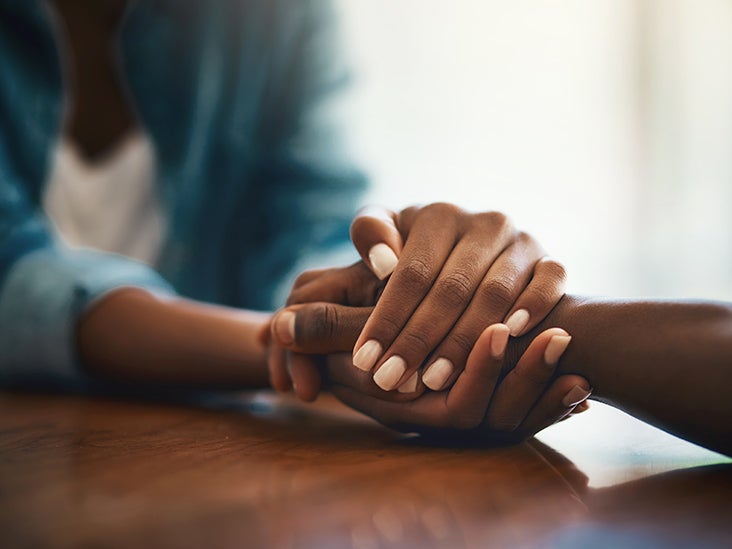Why Does Pooping Feel Good? And Other Poop Mysteries Solved

Healthline and our partners may receive a portion of revenues if you make a purchase using a link on this page.
Everybody poops in some way, shape, or form. But the whole process remains cloaked in mystery in a lot of ways.
Why does it feel so good to drop a big deuce? What's poop even made of? What's up with floaters?
We've got you covered.
You can thank your vagus nerve for this oh-so-good feeling, according to Dr. Anish Sheth and Josh Richman, authors of the book, 'What's Your Poo Telling You.'
According to the authors, this feeling, which they call 'poo-phoria,' occurs when your bowel movement stimulates the vagus nerve, which runs from your brainstem to your colon.
Your vagus nerve is involved in key bodily functions, including digestion and the regulating your heart rate and blood pressure.
Stimulation of the nerve can give you the chills and drop your heart rate and blood pressure enough to cause you to feel lightheaded and super-relaxed. The sensation is most likely after a large poop, which explains why it can be especially satisfying and even pleasurable.
We can hear your wheels turning, but before you go and eat all the things in hopes of making larger stool for more of that poo-phoria, beware of triggering defecation syncope.
This can occur when you overstimulate the vagus nerve, causing a significant drop in your blood pressure. The result is far from pleasure and may include passing out on the potty.
Poop comes in a range of colors, depending on what you eat and the amount of bile in your stool.
Bile is a yellow-green fluid that helps digest fats. Bile pigments move through your digestive tract where they're chemically altered by enzymes. This causes the pigments to change to brown — the color of poop if you ask any 5-year-old.
Pretty much any shade of brown or green is considered normal. But before you freak out at the site of black or crimson in your toilet, consider what you've eaten.
Red stool could indicate blood in the stool caused by any of a number of conditions. But it's just as likely to be the result of scarfing down a bag of beet chips or a chugging a red slushie.
Black stools could also be caused by gastrointestinal (GI) bleeding, but can also be caused by taking Pepto-Bismol or an iron supplement.
If your stool changes color and the change can't be explained by your diet or medication, see your healthcare provider.
Believe it or not, poop is mostly water. The amount of water in stool ranges from 63 to 86 percent.
The rest is made of:
- protein
- undigested fats
- undigested food residue
- polysaccharides
- ash
- bacterial biomass
The smell of your poop is a combination of the bacteria that's naturally present in your digestive system and the foods you eat.
While some people genuinely enjoy the smell of their own poop, most people find that the smell isn't great.
If your poop smells especially rancid, you may be eating too much protein or have a condition, such as irritable bowel syndrome, that's slowing your poop's transit time. This is the time it takes your stool to get from your gut to your bowel.
The food you eat is no different than the food scraps you throw away: The longer they sit there, the worse they smell.
If you experience frequent constipation or suddenly experience foul-smelling stools, talk to your healthcare provider. They can run some tests to get to the bottom of things.
Size doesn't matter when it comes to poop unless you suddenly notice a drastic change.
No two colons are alike and neither is the size or shape the poop coming out of them. Some people consistently have long, thick stools while others have smaller, thinner stools. As long as it's normal for you, size isn't an issue.
See your healthcare provider if the size of your stools change, especially if you start to have other symptoms, such as abdominal pain, cramping, or rectal bleeding.
Occasional changes in stool size aren't usually a cause for concern, but changes that last more than a week or two could be.
Thin or stringy poop stool, for example, can be a sign of an intestinal obstruction or even colon cancer.
Thick, hard stools that are difficult to pass can be caused by certain medications, a lack of exercise, and a number of conditions, including hypothyroidism and celiac disease.
Say it with us: My bowels, my butt, my bathroom schedule.
Basically, everyone is different and the time between bowel movements can vary significantly from person to person. Some people go a few times a day, others just a couple times a week.
According to Cleveland Clinic, going more than three days without a bowel movement is too long and likely to lead to constipation. This is because your stool hardens and becomes more difficult to pass.
If you experience a change in the frequency of your poop that lasts more than two weeks, see your healthcare provider.
Stools usually sink in the toilet, but the occasional floaters aren't a cause for concern and usually go back to normal after a while.
Excess gas is the most common cause of floating stools, along with malabsorption, which is the poor absorption of nutrients.
Some foods are more likely to cause gas in your poop than others. They're foods that are high in fiber, lactose, or starch.
Some of the usual suspects include:
- beans
- cabbage
- apples
- milk
- soft drinks
Malabsorption can happen when stools pass through the intestines too fast, such as when you have diarrhea.
GI tract infections, lactose intolerance, and other medical conditions can also interfere with your body's ability to absorb nutrients.
Tweaking your diet is usually enough to get your poop back to normal. If you continue to have floating poop for more than two weeks, call your healthcare provider.
Floating stools accompanied by blood in your stool, fever, dizziness, or unintended weight loss may mean you need immediate medical help.
We've all had corn poop. You know — you eat some Tex-Mex and the next thing you know, certain parts of your meal are looking back up at you from the toilet bowl.
Occasionally seeing fragments of undigested food in your stool is normal. It's usually caused by high-fiber vegetables that aren't properly broken down and absorbed in the digestive tract.
Common culprits are:
- corn
- beans
- tomato skins
- seeds
- quinoa
It's nothing to worry about unless it's accompanied by a persistent change in your bowel habits, diarrhea, or weight loss. If this is the case, see your healthcare provider.
Poop might seem mysterious, but it's actually a pretty good way to get a read on your overall health. It's all about finding your normal and contacting your healthcare provider when you notice large changes.
-
 6 interesting genetic traits that children will inherit from their parents
6 interesting genetic traits that children will inherit from their parents
-
 7 effects of asparagus on child development
7 effects of asparagus on child development
-
 Does cutting blood hair for babies bring good luck?
Does cutting blood hair for babies bring good luck?
-
 The more babies eat, the higher the height they develop, especially the second kind
The more babies eat, the higher the height they develop, especially the second kind
-
 Children with chicken pox should eat to quickly recover from the disease, without leaving a deep scar?
Children with chicken pox should eat to quickly recover from the disease, without leaving a deep scar?
-
 The more food is cooked, the better it can be for health, especially the second type
The more food is cooked, the better it can be for health, especially the second type
-
 Itchy Legs: Causes, Symptoms, Treatments, and Home Remedies
Itchy Legs: Causes, Symptoms, Treatments, and Home Remedies
-
 How to Get Rid of Hickies Fast: 8 Tips and Tricks
How to Get Rid of Hickies Fast: 8 Tips and Tricks
-
 Anal Orgasms: 35 Tips, Techniques, Positions, Benefits, and More
Anal Orgasms: 35 Tips, Techniques, Positions, Benefits, and More
-
 Kicked In The Balls: Why It Hurts and Other FAQs
Kicked In The Balls: Why It Hurts and Other FAQs
-
 Borderline Personality Disorder and Relationships: How to Make It Work
Borderline Personality Disorder and Relationships: How to Make It Work
-
 Sudden Death Syndrome: Infants, Adults, Causes, Prevention, More
Sudden Death Syndrome: Infants, Adults, Causes, Prevention, More































